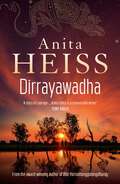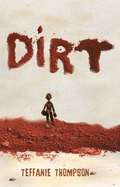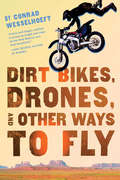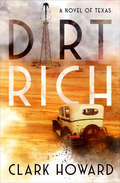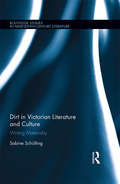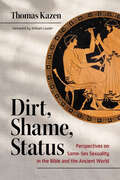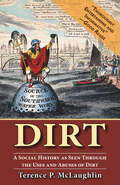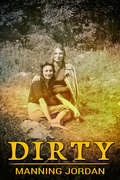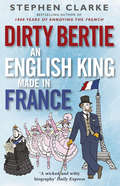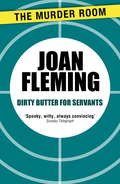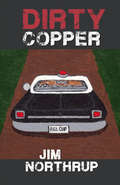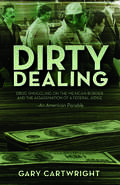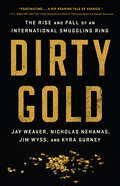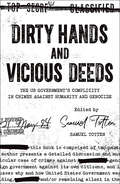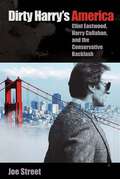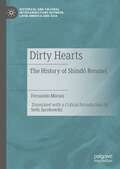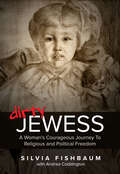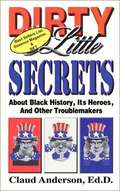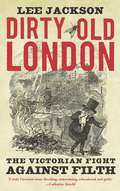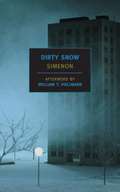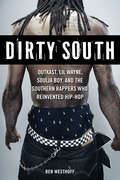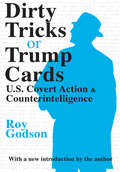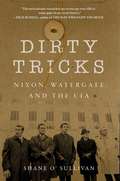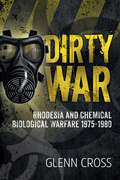- Table View
- List View
Dirrayawadha: Rise Up
by Anita Heiss'Dirrayawadha is full of heart and hope, truth-telling and history – and shimmers with language too' Guardian'A story from the past given vivid life for new understanding&’ Kate Grenville_______________________________________________Bathurst, 1820sMiinaa was a young girl when the white ghosts first arrived. She remembers the day they raised a piece of cloth and renamed her homeland 'Bathurst'. Now she lives at Cloverdale and works for a white family who have settled there. The Nugents are kind, but Miinaa misses her miyagan. His brother, Windradyne, is a Wiradyuri leader, and visits when he can, bringing news of unrest across their ngurambang. Miinaa hopes the violence will not come to Cloverdale. When Irish convict Daniel O'Dwyer arrives at the settlement, Miinaa's life is transformed again. The pair are magnetically drawn to each other and begin meeting at the bila in secret. Dan understands how it feels to be displaced, but they still have a lot to learn about each other. Can their love survive their differences and the turmoil that threatens to destroy everything around them? From the bestselling author of Bila Yarrudhanggalangdhuray (River of Dreams) comes another groundbreaking historical novel about resistance, resilience and love during the frontier wars. Praise for Dirrayawadha (Rise Up):&‘Dirrayawadha is a story of the courage of the Wiradyuri nation and the love of their Country. Anita Heiss is a remarkable writer.' Tony Birch &‘To read the book is to enter a lost time, a retrieved war, and to learn much, not least Wiradyuri. With dhuluny (truth) and marrumbang (love) of story, Heiss makes something good. And that is something for which modern Australia can be grateful.&’ The Age 'Historical in tone, yet absolutely contemporary in scope, Dirrayawadha is a beautiful triumph.' Mirandi Riwoe 'Dirrayawadha is a beautifully written and masterful telling of a pivotal point in our history.' Nicole Alexander
Dirt
by Teffanie ThompsonWashington would rather be playing basketball in the tournament instead of traveling to East Texas for a family reunion. He hates to read, but takes off on his own with a book to satisfy his parents. Washington travels back to the past where he encounters his ancestor Square and witnesses the brutal punishment of a slave when he is caught reading. When he steps out of the circle of dirt, Washington fears he may never be able to return to the present or see his family again.
Dirt Bikes, Drones, and Other Ways to Fly
by Conrad WesselhoeftSeventeen year-old dirt-bike-riding daredevil Arlo Santiago catches the eye of the U.S. military with his first-place ranking on a video game featuring drone warfare, and must reconcile the work they want him to do with the emotional scars he has suffered following a violent death in his family. Adios, Nirvana author Conrad Wesselhoeft, takes readers from the skies over war-torn Pakistan to the dusty arroyos of New Mexico's outback in this young adult novel about daring to live in the wake of unbearable loss.
Dirt Rich: A Novel of Texas
by Clark HowardThis saga about the building of an oil empire and one man&’s personal journey is &“wonderful . . . A truly exciting novel&” (Orlando Sentinel). After Sam Sheridan returns home from the World War I battlefront, he receives an odd inheritance from a man he&’s never met: a parcel of land in east Texas. With little to lose, he and his wife set off from Kansas City and find themselves in the dusty town of Dane—where they&’re met with inexplicable hostility. When a wealthy local rancher attempts to buy Sam&’s hundred acres for an impressive sum, Sam decides to hold on to it instead. And in the years and decades that follow, he&’ll find himself dealing with a brutal rivalry, a growing fortune, and a number of shocking secrets. &“Conflict, emotion, sex, suspense, joy, sorrow, surprise . . . It&’s a truly exciting novel, and the author&’s talent and attention to even the smallest detail serve to make it even more satisfying. From the provocative first chapter on, the reader is totally caught up in Sam Sheridan&’s world, in his quest for his past, his present and his future.&” —Orlando Sentinel &“Fast-paced . . . absorbing and real.&” —Chicago Tribune &“Entertaining and well-written.&” —Library Journal &“A winner.&” —Houston Chronicle
Dirt in Victorian Literature and Culture: Writing Materiality (Routledge Studies in Nineteenth Century Literature)
by Sabine SchültingAddressing the Victorian obsession with the sordid materiality of modern life, this book studies dirt in nineteenth-century English literature and the Victorian cultural imagination. Dirt litters Victorian writing – industrial novels, literature about the city, slum fiction, bluebooks, and the reports of sanitary reformers. It seems to be "matter out of place," challenging traditional concepts of art and disregarding the concern with hygiene, deodorization, and purification at the center of the "civilizing process." Drawing upon Material Cultural Studies for an analysis of the complex relationships between dirt and textuality, the study adds a new perspective to scholarship on both the Victorian sanitation movement and Victorian fiction. The chapters focus on Victorian commodity culture as a backdrop to narratives about refuse and rubbish; on the impact of waste and ordure on life stories; on the production and circulation of affective responses to filth in realist novels and slum travelogues; and on the function of dirt for both colonial discourse and its deconstruction in postcolonial writing. They address questions as to how texts about dirt create the effect of materiality, how dirt constructs or deconstructs meaning, and how the project of writing dirt attempts to contain its excessive materiality. Schülting discusses representations of dirt in a variety of texts by Charles Dickens, E. M. Forster, Elizabeth Gaskell, George Gissing, James Greenwood, Henry James, Charles Kingsley, Henry Mayhew, George Moore, Arthur Morrison, and others. In addition, she offers a sustained analysis of the impact of dirt on writing strategies and genre conventions, and pays particular attention to those moments when dirt is recycled and becomes the source of literary creation.
Dirt, Shame, Status: Perspectives on Same-Sex Sexuality in the Bible and the Ancient World
by Thomas KazenA scholarly examination of same-sex sexuality in the Bible in the context of the ancient world Scriptural prohibitions of same-sex sexual acts (so-called &“clobber passages&”) are often used as prooftexts to support the oppression of LGBT communities in the West today. However, such interpretation of these scant references ignores critical sociohistorical context from the ancient world. Analyzing a wealth of primary sources, Thomas Kazen brings biblical studies into conversation with the sexual norms and practices of the ancient world. Near Eastern, Greek, and Roman texts, including the Old and New Testaments, exhibit ancient concerns about hierarchy in sexual relationships. Examining references to sexuality through the lenses of power and subordination, honor and shame, and purity, Kazen sheds light on homophobic passages in the Bible. Special attention is given to the Levitical laws and the Pauline epistles. Ultimately, Kazen calls us to renegotiate the balance between our ancient heritage and our contemporary values. Carefully researched and accessibly presented, Dirt, Shame, Status lends readers insight into the diverse cultural influences on the Bible. Kazen&’s work offers an informed and important perspective on a controversial topic of perennial interest. Scholars, students, and all curious readers of Scripture will find this volume to be an indispensable resource for understanding complex ancient texts and contexts.
Dirt: A Social History as Seen Through the Uses and Abuses of Dirt
by Terence McLaughlinDelve into the fascinating world of dirt in this history of culture, cleanliness, and our evolving perceptions of what is and isn&’t gross. In this engaging and often humorous study of life&’s imperfections, public health and hygiene authority Terence McLaughlin dissects our attitudes toward the filth that has accompanied society throughout human history. According to him, &“dirt&” is a matter of opinion. Cultural attitudes about everything from factory smoke to personal hygiene are constantly shifting with the economic and political exigencies of the era. McLaughlin cites Old Testament examples of cleanliness which, unbeknownst at the time, helped protect the observant from the plague. The famous baths of ancient Rome were seen as progress for personal hygiene, and later scorned by Christians who rejected all things Roman. With a litany of fascinating examples, McLaughlin sheds light on how we accept or reject substances. Dirt is essential reading for anyone wishing to understand how we shape our environment.
Dirty
by Manning JordanIt's the summer of 1971, and sculptor Priscilla is commissioned to make a piece for the Mexico City Museum. She travels to Mexico with her apprentice Giacomo and soon meets Ramona, a striking curator for the museum. As they spend time together, they come to the realization they met years before, and the spark has not faded.Against the backdrop of the Mexican Dirty War, Ramona awakens Priscilla to fighting for justice. Tension builds between them and Priscilla tries to pull away, but they must work together and grow more intimate. What will happen between them when Priscilla's commission is done?
Dirty Bertie: An English King Made in France
by Stephen ClarkeThe entertaining biography of Edward VII and his playboy lifestyle, by Stephen Clarke, author of 1000 Years of Annoying the French and A Year in the Merde.Despite fierce opposition from his mother, Queen Victoria, Edward VII was always passionately in love with France.He had affairs with the most famous Parisian actresses, courtesans and can-can dancers. He spoke French more elegantly than English. He was the first ever guest to climb the Eiffel Tower with Gustave Eiffel, in defiance of an official English ban on his visit. He turned his French seduction skills into the diplomatic prowess that sealed the Entente Cordiale.A quintessentially English king? Pas du tout! Stephen Clarke argues that as 'Dirty Bertie', Edward learned all the essentials in life from the French.
Dirty Butter For Servants
by Joan FlemingIt is 1833. William IV and the country stand upon the edge of the greatest changes ever known, at the end of old rural England. Mr Hobshaw, a retired diplomat and squire of Underscar in the Yorkshire dales, has suddenly remarried; his new wife has a strong head for business but is also a miser. Mrs Hobshaw has four ageing captive daughters, and her servants are slaves. The atmosphere is soon too much for her husband, who leaves the house to reside across the stable yard with his groom, Sheffield. And it is from there that this gothic drama unfolds ...'You will read on compulsively' Sunday Times
Dirty Copper
by Jim NorthrupIn Dirty Copper, Jim Northrup returns to the story of Luke Warmwater, an Anishinaabe man who returns to the Reservation after serving in Vietnam. <P><P>This prequel to Northrup's classic novel Walking the Rez Road deals with the emotions and cultural changes Warmwater struggles with immediately following his service in Vietnam. He becomes a deputy sheriff on the Rez, fighting crime and racism, and is bothered by flashbacks of the war, which are intense at first but gradually become less frequent as time goes on.Jim Northrup is an award-winning journalist, poet, and playwright. His syndicated column, "Fond du Lac Follies," was named Best Column at the 1999 Native American Journalists Association convention, and he holds an honorary doctorate of letters from Fond du Lac Tribal and Community College. His previous books include Rez Salute: The Real Healer Dealer, which received Honorable Mention from the 2013 Northeastern Minnesota Book Awards, and Walking the Rez Road: Stories, winner of the Midwest Book Achievement Award, Minnesota Book Award, and Northeastern Minnesota Book Award.
Dirty Dealing
by Gary Cartwright"Cartwright tells the story of the Chagra brothers, Lee and Joe, as they get mixed up with the drug-running community along the border and in short order find themselves hopelessly entangled in a net cast by the DEA. Even readers unfamiliar with the well-publicized events of the book or of the dark, lawless aspect that often rules El Paso will find themselves pulled along by the plot: brigands and intrigue leap from almost every page, and the story just gets wilder the further into it you venture."-from an Amazon.com reviewFour pages into this rollicking good story, the central figure, Lee Chagra, comes alive: "[Lee] washed his morning cocaine down with strong coffee and remembered the time he had met Sinatra, how genuine he appeared." Everything you'll need to know and remember about Chagra-the son of Syrian immigrants to Mexico and an attorney who spun the world of dope-running, border-crossing, high-living outlaws along the El Paso-Juarez border around his finger like the gaudy rings he favored-can be neatly summarized in that one sentence. Chagra dies two pages later, yet he haunts the rest of this cautionary tale like a high-rolling specter.Gary Cartwright is a long-respected, award-winning journalist and contributing editor to Texas Monthly magazine. The author of numerous books, he has contributed stories to such national publications as Harper's, Life, and Esquire. He lives in Austin, Texas.
Dirty Gold: The Rise and Fall of an International Smuggling Ring
by Nicholas Nehamas Jay Weaver Jim Wyss Kyra GurneyThe explosive story of the illegal gold trade from South America, and the three Miami businessmen who got rich on itIn March of 2017, a team of FBI agents arrested Juan Granda, Samer Barrage, and Renato Rodriguez, or as they called themselves, "the three amigos." The trio--first identified publicly by the authors of this book-- had built a $3.6 billion dollar business in metals trading, mostly illegal Peruvian gold.Their arrests and subsequent prosecution laid bare more than a corrupt finance firm, though. Instead, Dirty Gold lifts the veil on an illegal international business that is five times as lucrative as trafficking cocaine, and arguably more dangerous.As the award-winning team of Miami Herald reporters show, illegal gold mines have become a haven for Latin American drug money. The gold is then sold to metals traders, and ultimately to Americans who want it in their jewelry, smartphones, and investment portfolios. By following the trail of these three traders, Dirty Gold leads us into a criminal underworld that has never before been in full view.
Dirty Hands and Vicious Deeds: The U.s. Government's Complicity In Crimes Against Humanity And Genocide
by Samuel TottenThese original essays show how the US government repeatedly aided certain regimes as they planned and then carried out crimes against humanity and genocide.
Dirty Harry's America: Clint Eastwood, Harry Callahan, and the Conservative Backlash
by Joe Street"Street provides a crucial critical and cultural service by not only studying Eastwood’s individual films in sharp detail but also by providing a close and serious analysis of the cultural and historic times of the films."—Sam B. Girgus, author of Clint Eastwood’s America "By far the most comprehensive, sustained, and detailed discussion of the Dirty Harry phenomenon. A thorough and engaging account of how a fictitious renegade cop became an enduring icon of the angry conservative backlash that sought to halt 1960s liberalism in its tracks."—Nick Heffernan, author of Culture, Environment and Ecopolitics Clint Eastwood’s Dirty Harry became the prototype for a new kind of movie cop—an antihero in pursuit of his own vision of justice. The Dirty Harry series helped cement Eastwood and his character, Harry Callahan, as central figures in 1970s and 1980s Hollywood cinema. In Dirty Harry’s America, Joe Street argues that the movies shed critical light on the culture and politics of the post-1960s era and locates San Francisco as the symbolic cultural battleground of the time. Across the entire series, conservative anger and moral outrage confront elitist liberalism and moral relativism. Paying particular attention the films' representation of crime, family and community, sexuality, and race, Street maintains that through referencing real events and political struggles, the films themselves became active participants in the culture wars. Unapologetic carrier of right and might, Harry Callahan becomes America’s Ur-conservative: "unbending, moral, incorruptible, and most important, always right." Long after the series, Callahan’s legacy remains strong in American political discourse, cinema, and pop culture, and he continues to shape Eastwood’s later political and cinematic career.
Dirty Hearts: The History of Shindō Renmei (Historical and Cultural Interconnections between Latin America and Asia)
by Fernando MoraisFernando Morais’ Dirty Hearts is a tour de force of literary journalism that investigates the discriminatory treatment of the Japanese immigrant community in Brazil during World War II and in the aftermath of Japan’s defeat and unconditional surrender. In contrast to the internment camps and compulsory military service that characterized the Japanese American wartime experience, this book traces the rise to power of Shindō Renmei, an ultranationalist secret society that formed in response to the anti-Japanese measures enacted under Getulio Vargas’ Estado Novo. Based in São Paulo, the group used terrorism, propaganda campaigns, and conspiracy theories to violently enforce its narrative of Japan’s victory. These traumatic events nevertheless brought about a permanent transformation in the Japanese Brazilian community from a largely insular colony with close ties to its imperial homeland to its new identity as an ethnic minority in postwar Brazil’s fraught racial democracy.
Dirty Jewess: A Woman's Courageous Journey to Religious and Political Freedom
by Silvia FishbaumDirty Jewess is the personal account of one woman's courageous journey towards religious and political freedom while coming of age in post-Holocaust, communist Czechoslovakia. The narrative recalls the author's experience as a child of Holocaust survivors, living as a refugee in Rome, and finally realizing her dream of becoming a successful American citizen. Silvia Fishbaum's life behind the iron curtain is a universal tale of humanity, resilience, and overcoming adversity. Fishbaum weaves together her mother's testimony of Auschwitz with the testimony of her childhood art tutor, Ludovit Feld—a victim of Mengele's experiments—to create a compelling and layered life narrative.
Dirty Little Secrets about Black History, Heroes and Other Troublemakers
by Robert Coleman Claud Anderson Joann Anderson Florence JekinsDirty Little Secrets About Black History, Heroes And Other Troublemakers
Dirty Old London
by Lee JacksonIn Victorian London, filth was everywhere: horse traffic filled the streets with dung, household rubbish went uncollected, cesspools brimmed with "night soil," graveyards teemed with rotting corpses, the air itself was choked with smoke. In this intimately visceral book, Lee Jackson guides us through the underbelly of the Victorian metropolis, introducing us to the men and women who struggled to stem a rising tide of pollution and dirt, and the forces that opposed them. Through thematic chapters, Jackson describes how Victorian reformers met with both triumph and disaster. Full of individual stories and overlooked details--from the dustmen who grew rich from recycling, to the peculiar history of the public toilet--this riveting book gives us a fresh insight into the minutiae of daily life and the wider challenges posed by the unprecedented growth of the Victorian capital.
Dirty Old London: The Victorian Fight Against Filth
by Lee JacksonIn Victorian London, filth was everywhere: horse traffic filled the streets with dung, household rubbish went uncollected, cesspools brimmed with "night soil," graveyards teemed with rotting corpses, the air itself was choked with smoke. In this intimately visceral book, Lee Jackson guides us through the underbelly of the Victorian metropolis, introducing us to the men and women who struggled to stem a rising tide of pollution and dirt, and the forces that opposed them.Through thematic chapters, Jackson describes how Victorian reformers met with both triumph and disaster. Full of individual stories and overlooked details--from the dustmen who grew rich from recycling, to the peculiar history of the public toilet--this riveting book gives us a fresh insight into the minutiae of daily life and the wider challenges posed by the unprecedented growth of the Victorian capital.
Dirty Snow
by Georges SimenonNineteen-year-old Frank Friedmaier lives in a country under occupation. Most people struggle to get by; Frank takes it easy in his mother's whorehouse, which caters to members of the occupying forces. But Frank is restless. He is a pimp, a thug, a petty thief, and, as Dirty Snow opens, he has just killed his first man. Through the unrelenting darkness and cold of an endless winter, Frank will pursue abjection until at last there is nowhere to go. Hans Koning has described Dirty Snow as "one of the very few novels to come out of German-occupied France that gets it exactly right. " In a study of the criminal mind that is comparable to Jim Thompson's The Killer Inside Me, Simenon maps a no man's land of the spirit in which human nature is driven to destruction—and redemption, perhaps, as well—by forces beyond its control.
Dirty South: OutKast, Lil Wayne, Soulja Boy, and the Southern Rappers Who Reinvented Hip-Hop
by Ben WesthoffActing as both investigative journalist and irreverent critic, Ben Westhoff journeys across the southern United States in a small Hyundai to document the phenomenon of southern hip-hop. The exclusive interviews with the genre's prominent players take many forms--watching rappers "make it rain" in a Houston strip club, partying with The 2 Live Crew's Luke Campbell, visiting the gritty neighborhoods where T. I. and Lil Wayne grew up, and speaking with DJ Smurf and Ms. Peachez along the way. The celebrated but dark history of Houston's Rap-A-Lot Records, the lethal rivalry between Atlanta's Gucci Mane and Young Jeezy, and the venerable Scarface's memories from time in a mental institution are just a few of the textured and tricky subjects explored.
Dirty Tricks or Trump Cards: U.S. Covert Action and Counterintelligence (Intelligence And National Security Library)
by Roy GodsonContrary to popular misconceptions and public branding as "dirty tricks," covert action and counterintelligence can have considerable value. Democracies, while wary of these instruments, have benefited significantly from their use, saving lives, treasure, and gaining strategic advantage. As liberal democracies confront the post-Cold War mix of rogue states and non-state actors, such as criminals and terrorists, and weapons of mass destruction and mass disruption, these clandestine arts may prove to be important tools of statecraft, and perhaps trump cards in the twenty-first century.Godson defines covert action as influencing events in other parts of the world without attribution, and counterintelligence as identifying, neutralizing, and exploiting the secret activities of others. Together they provide the capability to resist manipulation and control others to advantage. Counterintelligence protects U.S. military, technological, and diplomatic secrets and turns adversary intelligence to U.S. advantage. Covert action enables the United States to weaken adversaries and to assist allies who may be hampered by open acknowledgment of foreign support.Drawing on contemporary and historical literature, broad-ranging contacts with senior intelligence officials in many countries, as well as his own research and experience as a longtime consultant to the U.S. government, Godson traces the history of U.S. covert action and counterintelligence since 1945, showing that covert action works well when it is part of a well-coordinated policy and when policy makers are committed to succeeding in the long-term. Godson argues that the best counterintelligence is an offensive defense. His exposition of the essential theoretical foundations of both covert action and counterintelligence, supported by historical examples, lays out the ideal conditions for their use, as well as demonstrating why they are so difficult to attain.This book will be of interest to students and general readers interested in political science, national security, foreign policy, and military policy.
Dirty Tricks: The Dark Side of Democracy
by Shane O'SullivanThe victory of Richard Nixon in the US presidential election of 1968 swung on an “October Surprise”— a treasonous plot engineered by key figures in the Republican Party to keep the South Vietnamese government away from peace talks in Paris, costing thousands of American lives. There is growing evidence that the CIA was deeply involved in illegal domestic operations targeting Daniel Ellsberg, and in the Watergate break-ins during Nixon’s 1972 campaign, which ultimately led to his downfall. CIA Director Richard Helms’ relationship with Watergate burglar E. Howard Hunt was much closer than previously disclosed and the CIA agent inside the plot was sent on a double agent mission by American intelligence after he got out of prison. Drawing on newly-declassified files and previously-unpublished documents, Dirty Tricks debunks the myths around Watergate and deepens our understanding of the “dirty tricks” that undermined democracy during the Nixon years and destroyed public trust in politics during the seventies. These scandals turn on the covert action of two powerful interest groups—the senior CIA officers around Helms, and the key advisers around Nixon – in this chilling story of political espionage and deception.
Dirty War: Rhodesia and Chemical Biological Warfare 1975-1980
by Glenn CrossDirty War is the first comprehensive look at the Rhodesia’s top secret use of chemical and biological weapons (CBW) during their long counterinsurgency against native African nationalists. Having declared its independence from Great Britain in 1965, the government—made up of European settlers and their descendants—almost immediately faced a growing threat from native African nationalists. In the midst of this long and terrible conflict, Rhodesia resorted to chemical and biological weapons against an elusive guerrilla adversary. A small team made up of a few scientists and their students at a remote Rhodesian fort to produce lethal agents for use. Cloaked in the strictest secrecy, these efforts were overseen by a battle-hardened and ruthless officer of Rhodesia’s Special Branch and his select team of policemen. Answerable only to the head of Rhodesian intelligence and the Prime Minister, these men working alongside Rhodesia’s elite counterguerrilla military unit, the Selous Scouts, developed the ingenious means to deploy their poisons against the insurgents. The effect of the poisons and disease agents devastated the insurgent groups both inside Rhodesia and at their base camps in neighboring countries. At times in the conflict, the Rhodesians thought that their poisons effort would bring the decisive blow against the guerrillas. For months at a time, the Rhodesian use of CBW accounted for higher casualty rates than conventional weapons. In the end, however, neither CBW use nor conventional battlefield successes could turn the tide. Lacking international political or economic support, Rhodesia’s fate from the outset was doomed. Eventually the conflict was settled by the ballot box and Rhodesia became independent Zimbabwe in April 1980. Dirty War is the culmination of nearly two decades of painstaking research and interviews of dozens of former Rhodesian officers who either participated or were knowledgeable about the top secret development and use of CBW. The book also draws on the handful of remaining classified Rhodesian documents that tell the story of the CBW program. Dirty War combines all of the available evidence to provide a compelling account of how a small group of men prepared and used CBW to devastating effect against a largely unprepared and unwitting enemy. Looking at the use of CBW in the context of the Rhodesian conflict, Dirty War provides unique insights into the motivation behind CBW development and use by states, especially by states combating internal insurgencies. As the norms against CBW use have seemingly eroded with CW use evident in Iraq and most recently in Syria, the lessons of the Rhodesian experience are all the more valid and timely.
